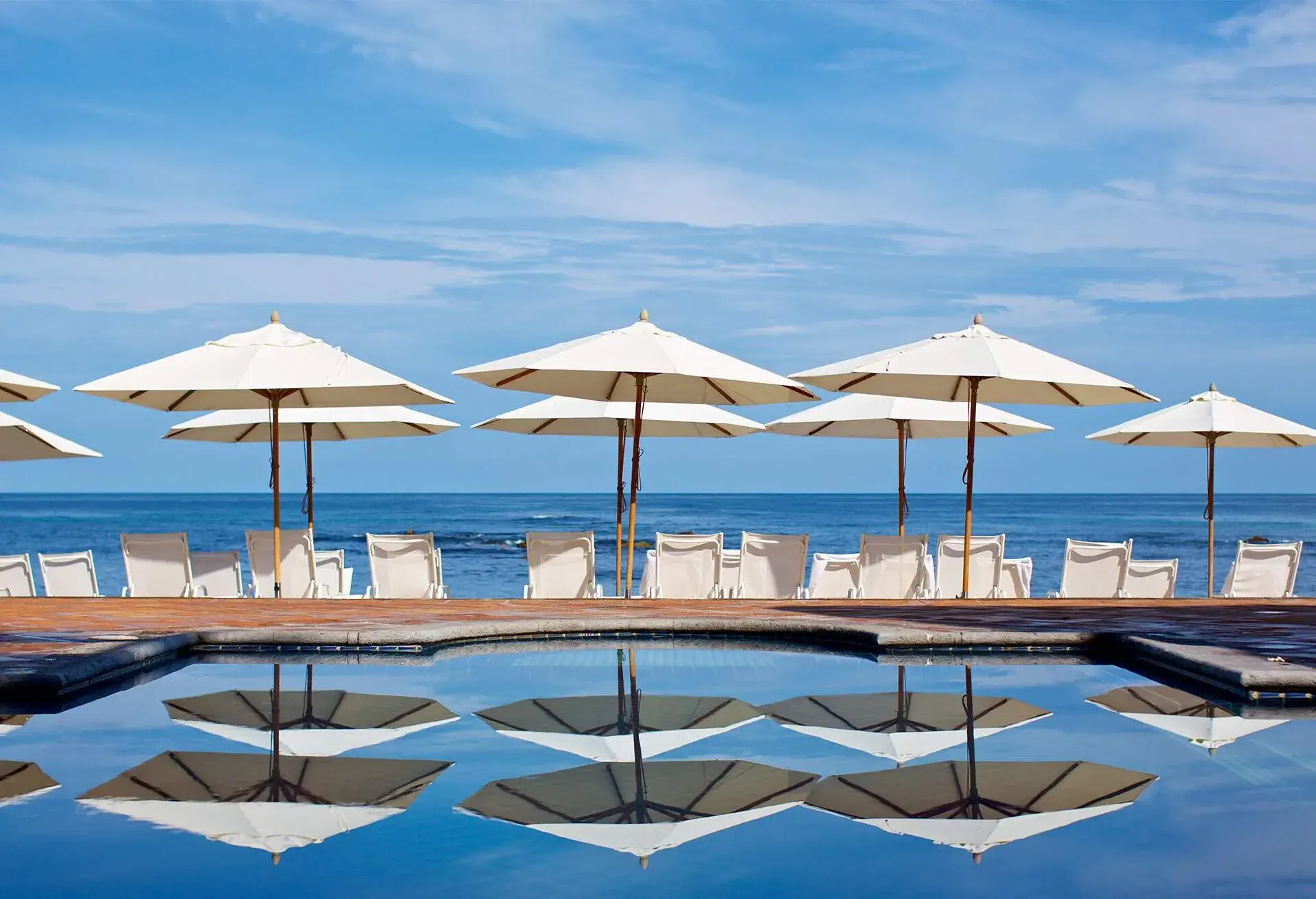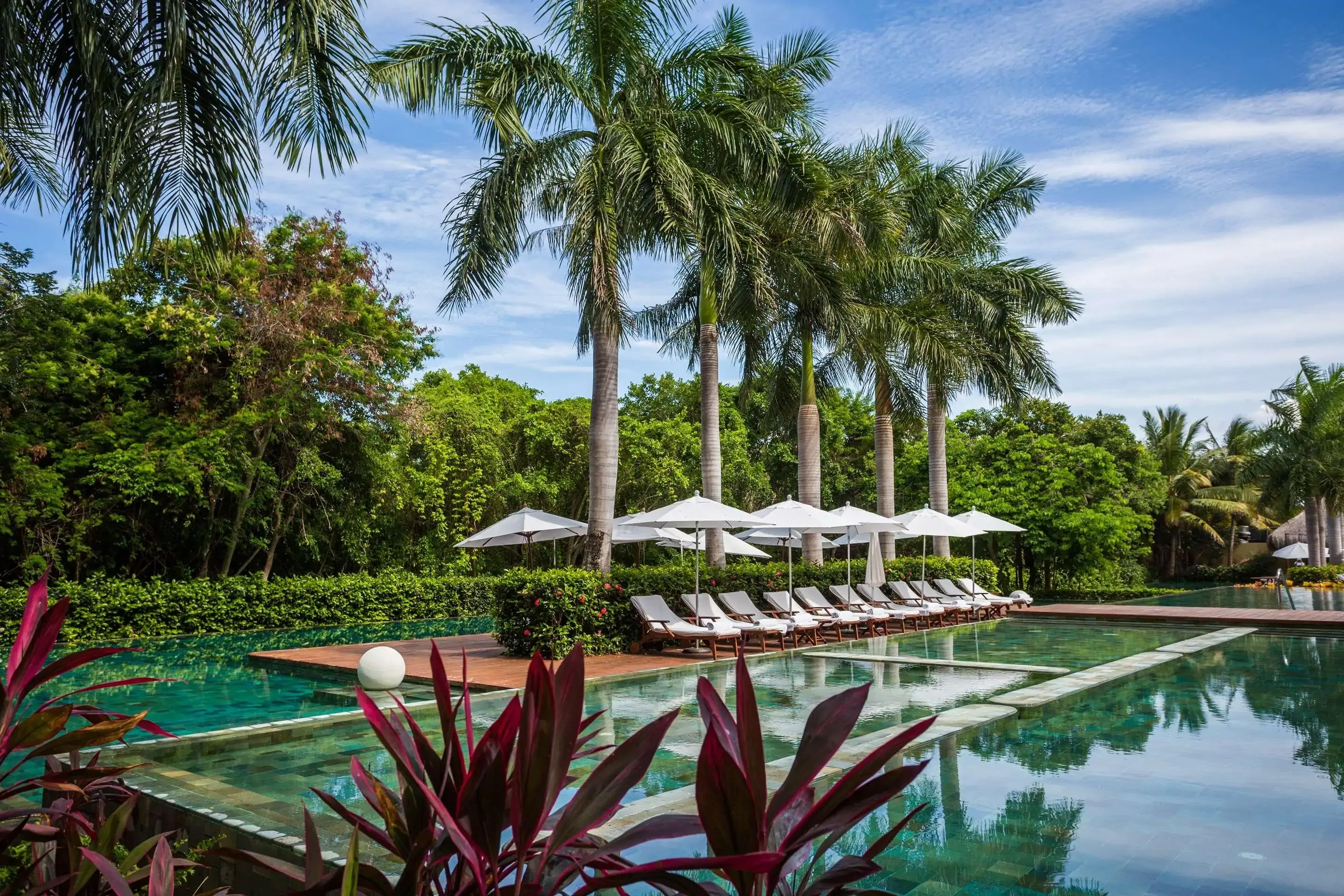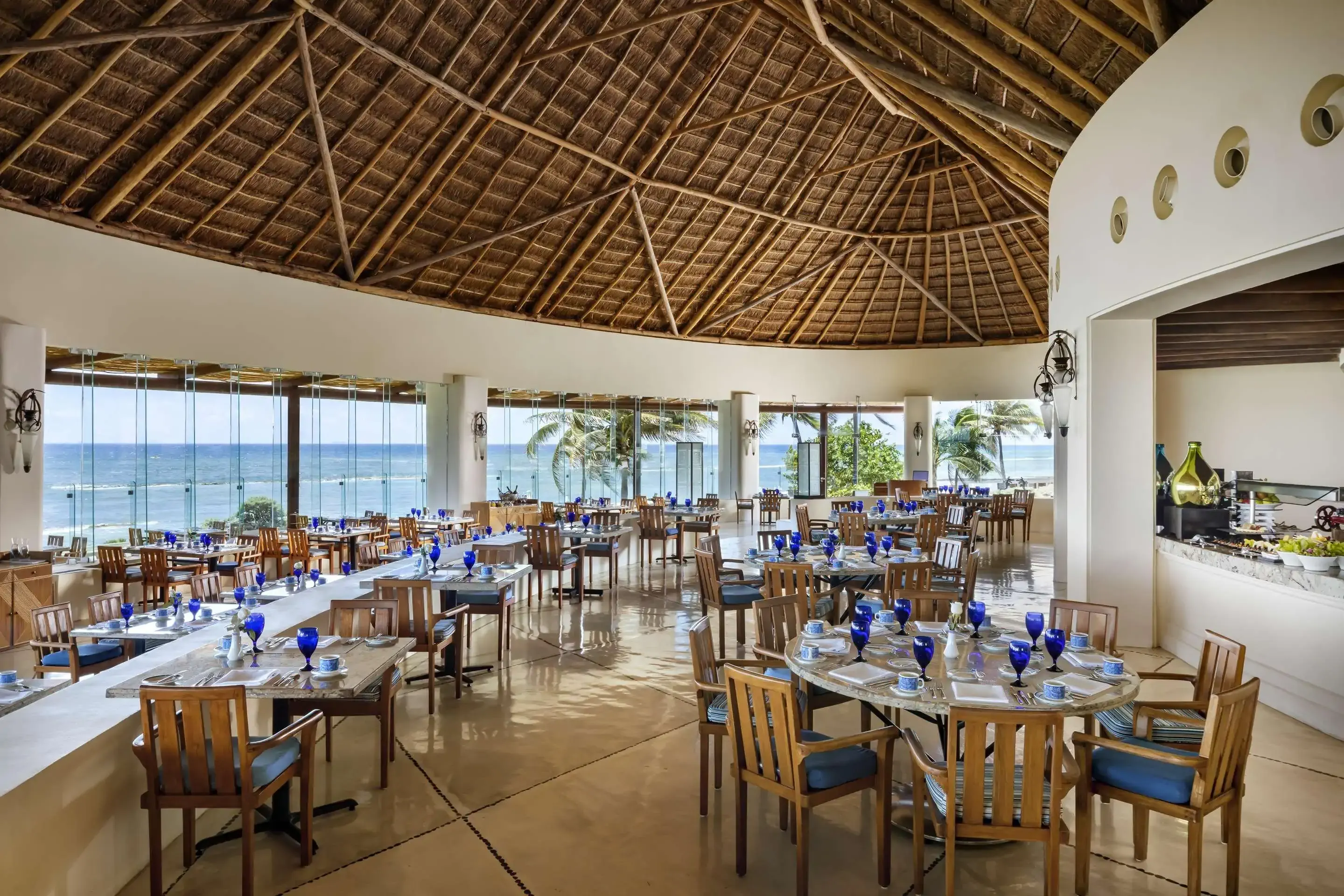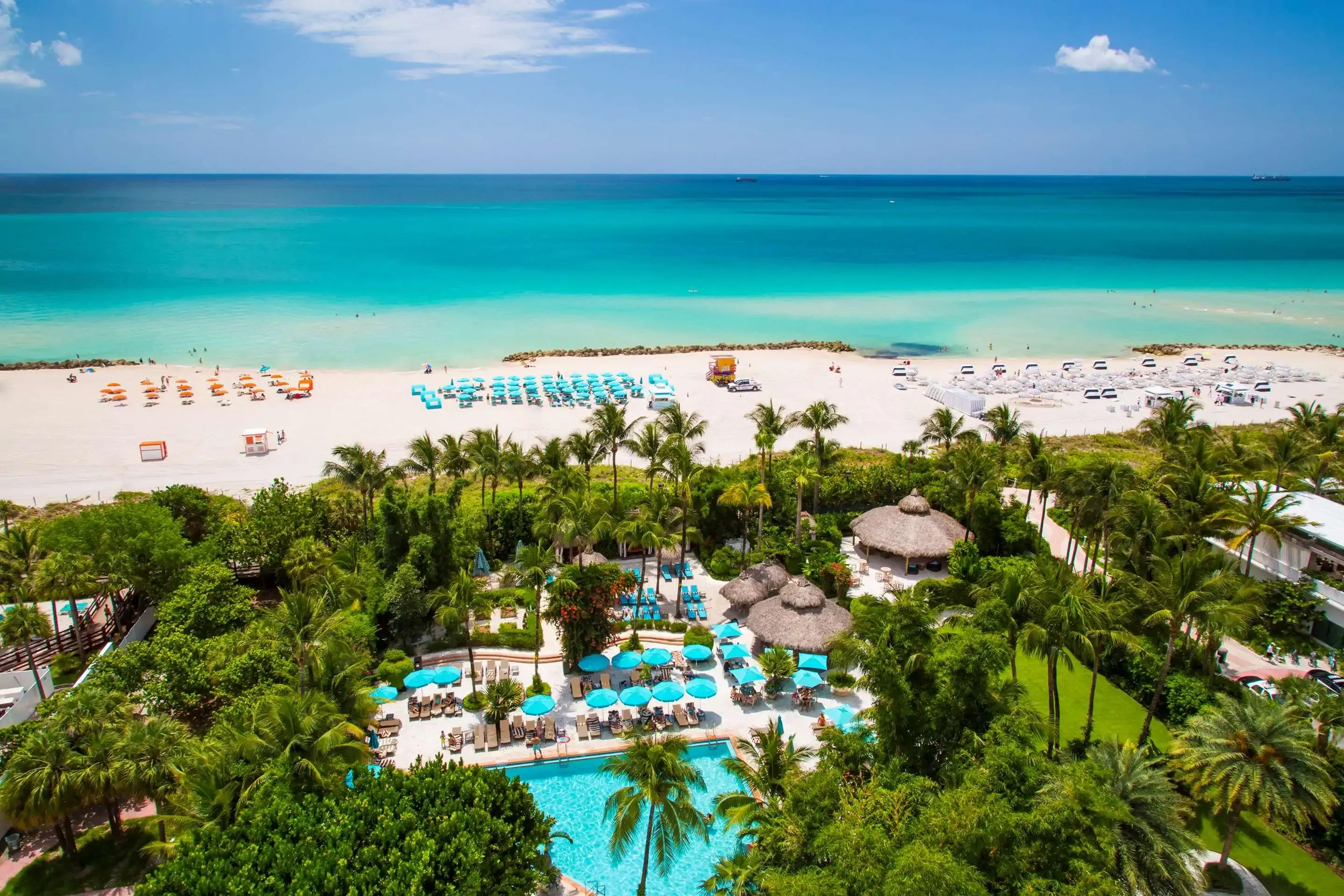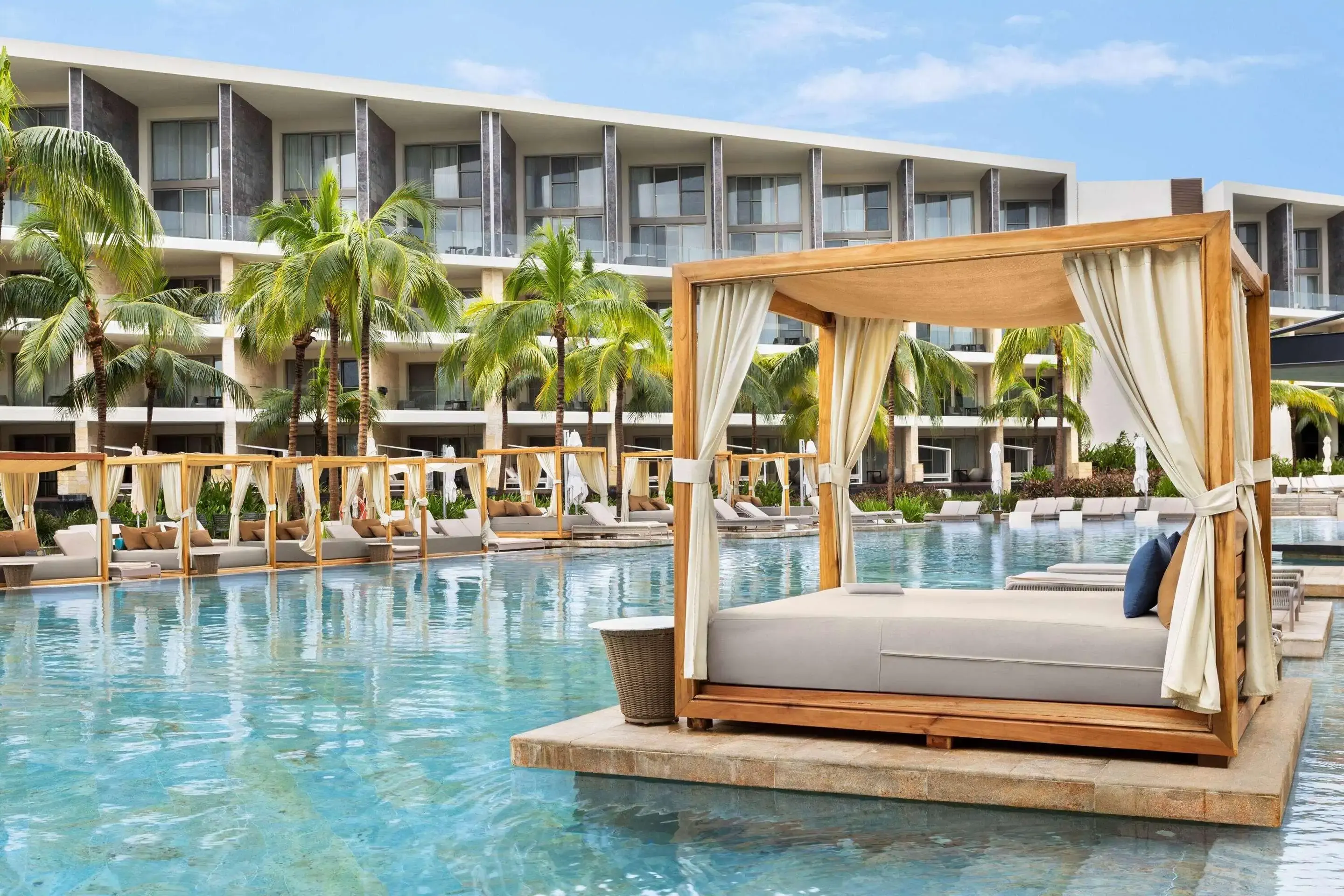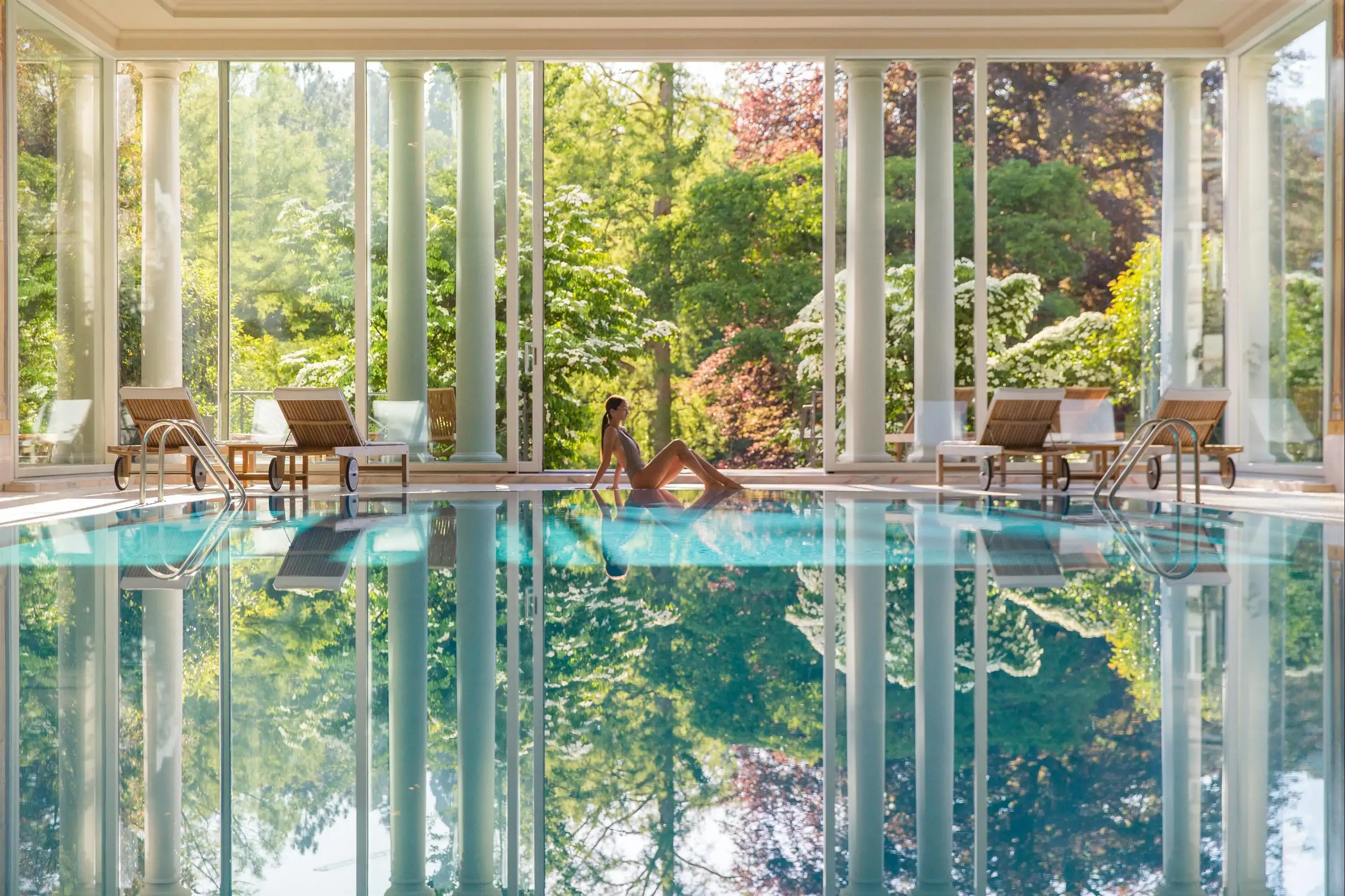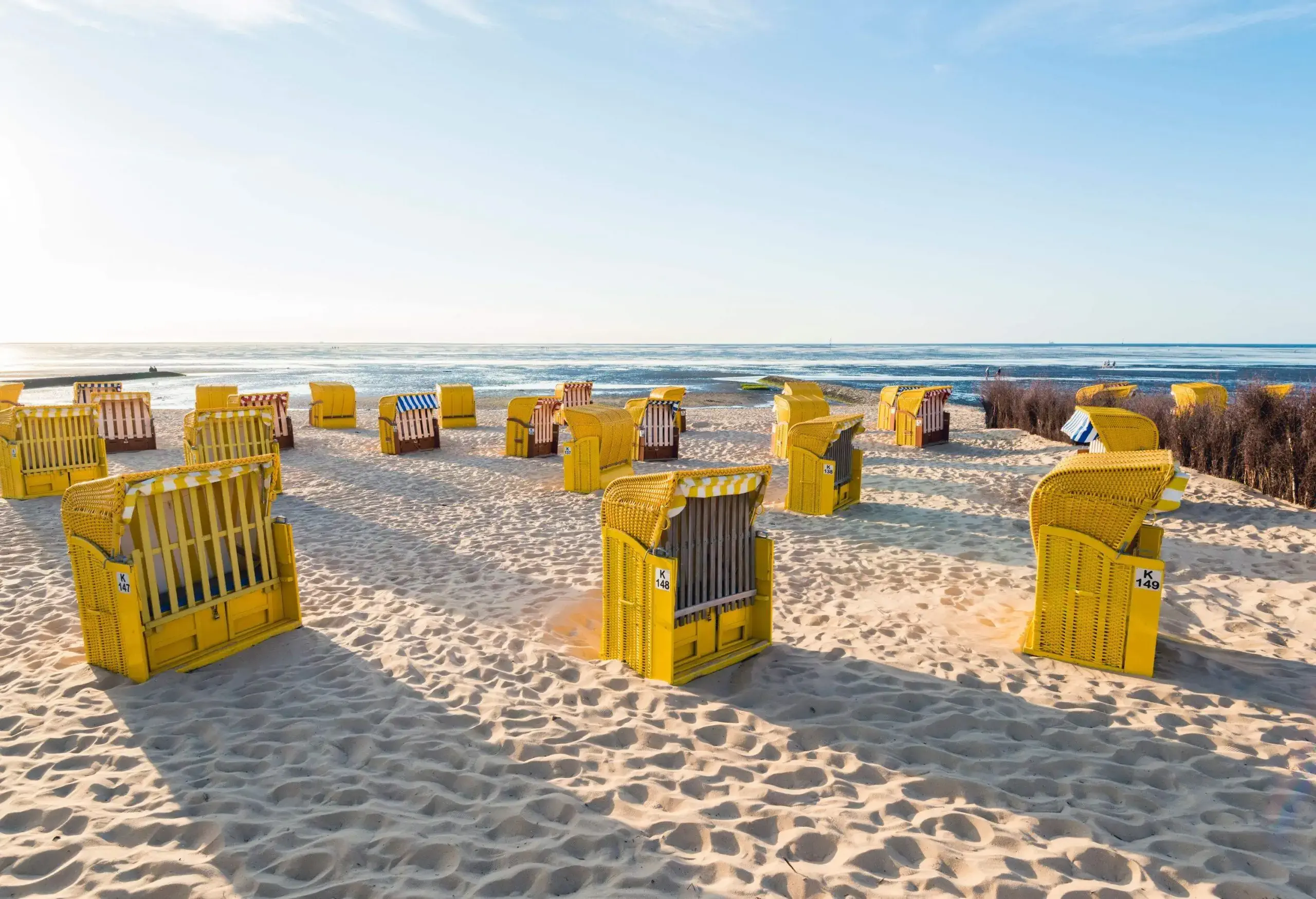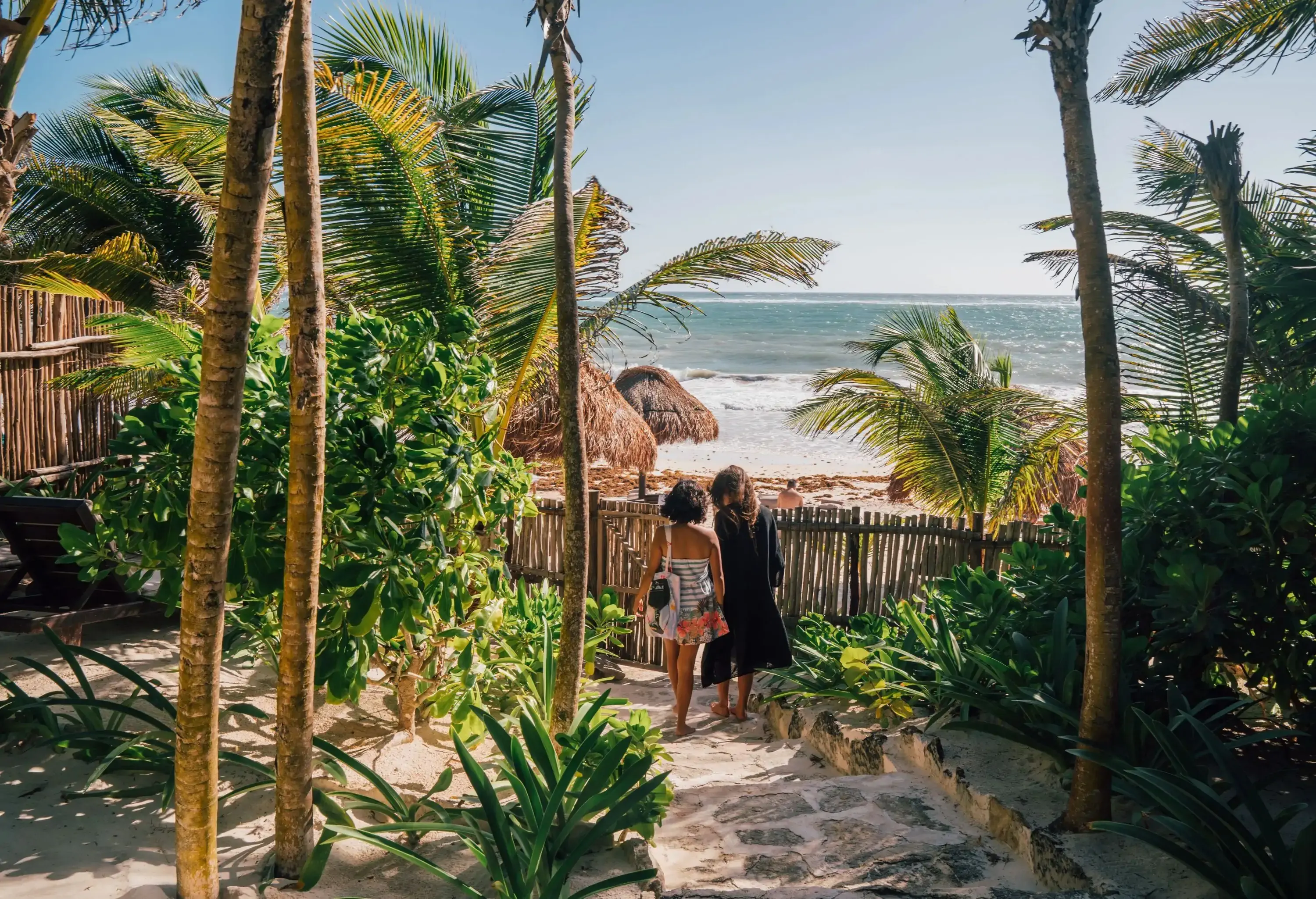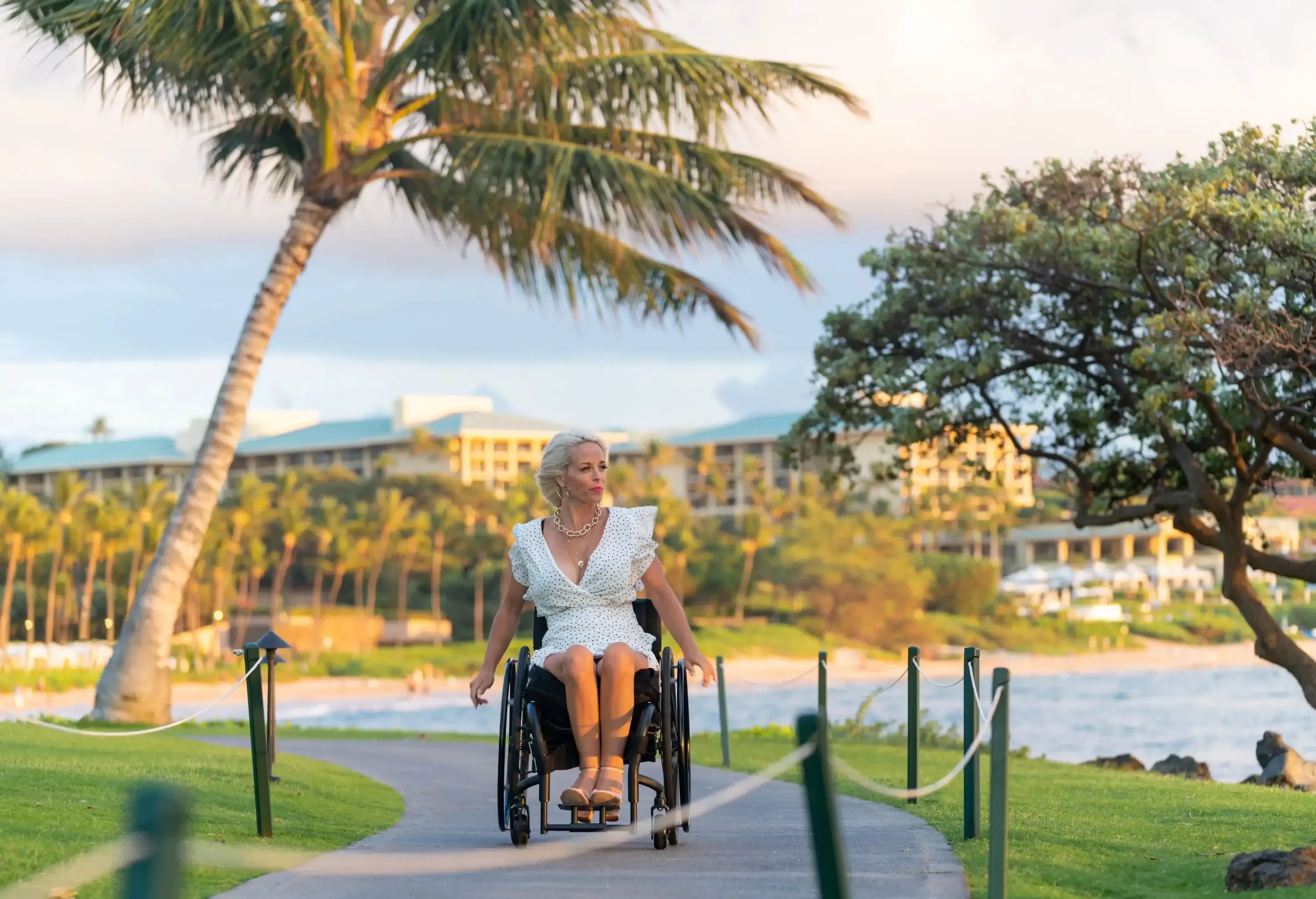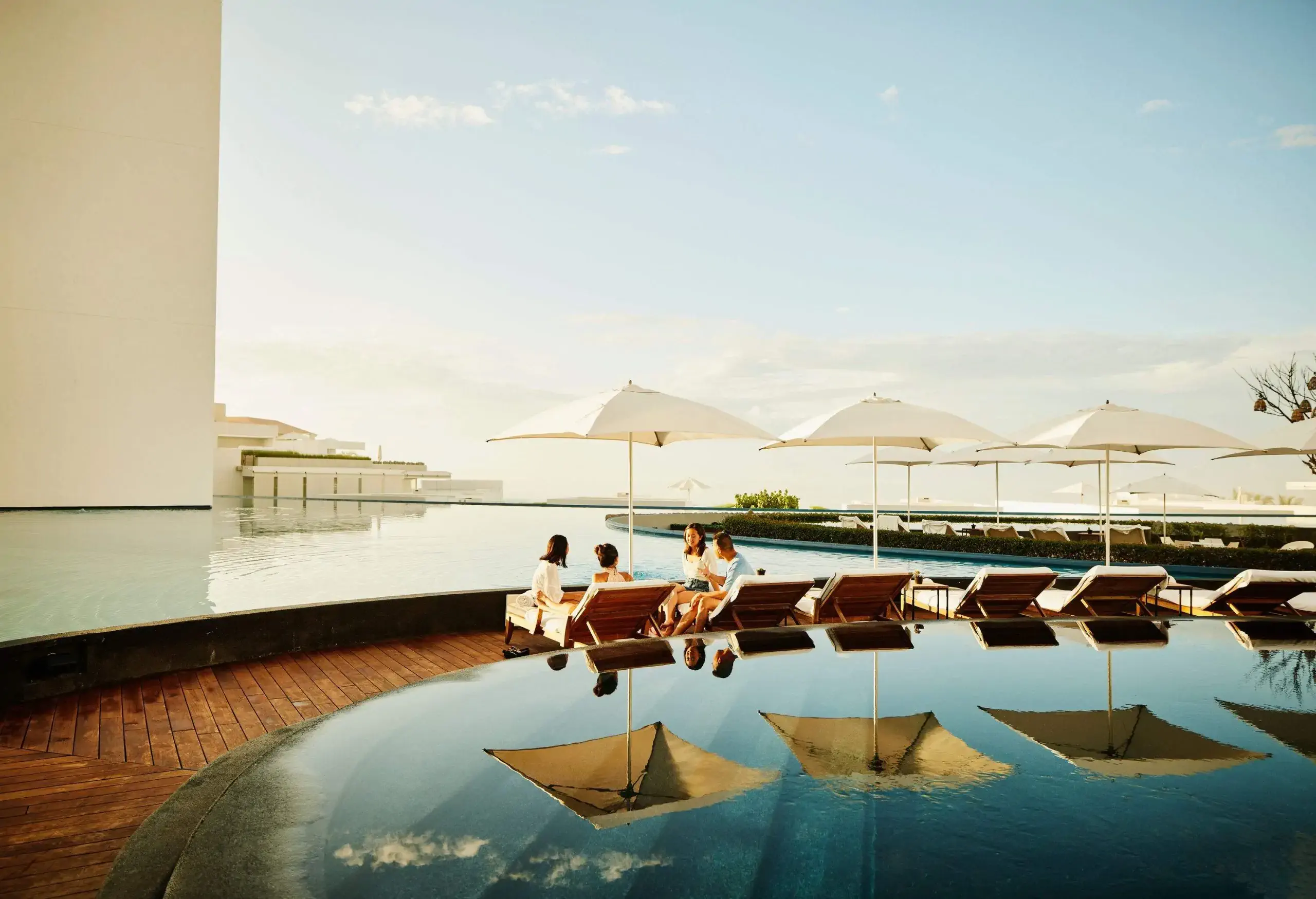All inclusive: The term alone conjures up images of tropical drinks, gourmet meals, and no stress over bills or tipping. But what does all-inclusive mean?
Here, we’ll take a look at the benefits, tips, and other considerations travelers should keep in mind when it comes to booking all-inclusive resorts and hotels. And we’ll also help you find the best deals for your next well-deserved break.
What does “all-inclusive” mean in hotels and resorts?
The term “all-inclusive” can mean various things. But it generally means that all costs, from meals to drinks to activities, is included in the price of a hotel or resort stay.
However, it’s important to remember that what’s included isn’t the same for every property. Additional services or activities may vary depending on the resort or hotel. In addition, there may be extra costs hidden in the fine print.
What do all-inclusive hotels include?
Imagine stepping into a world where every craving is satisfied. From the moment you arrive, your every whim is catered to, and you have the stress-free setup of knowing exactly what you’ll be paying for your entire vacation. This is the magic of all-inclusive resorts and hotels.
But what, exactly, is covered? Let’s break it down.
What’s not included in all-inclusive resorts?
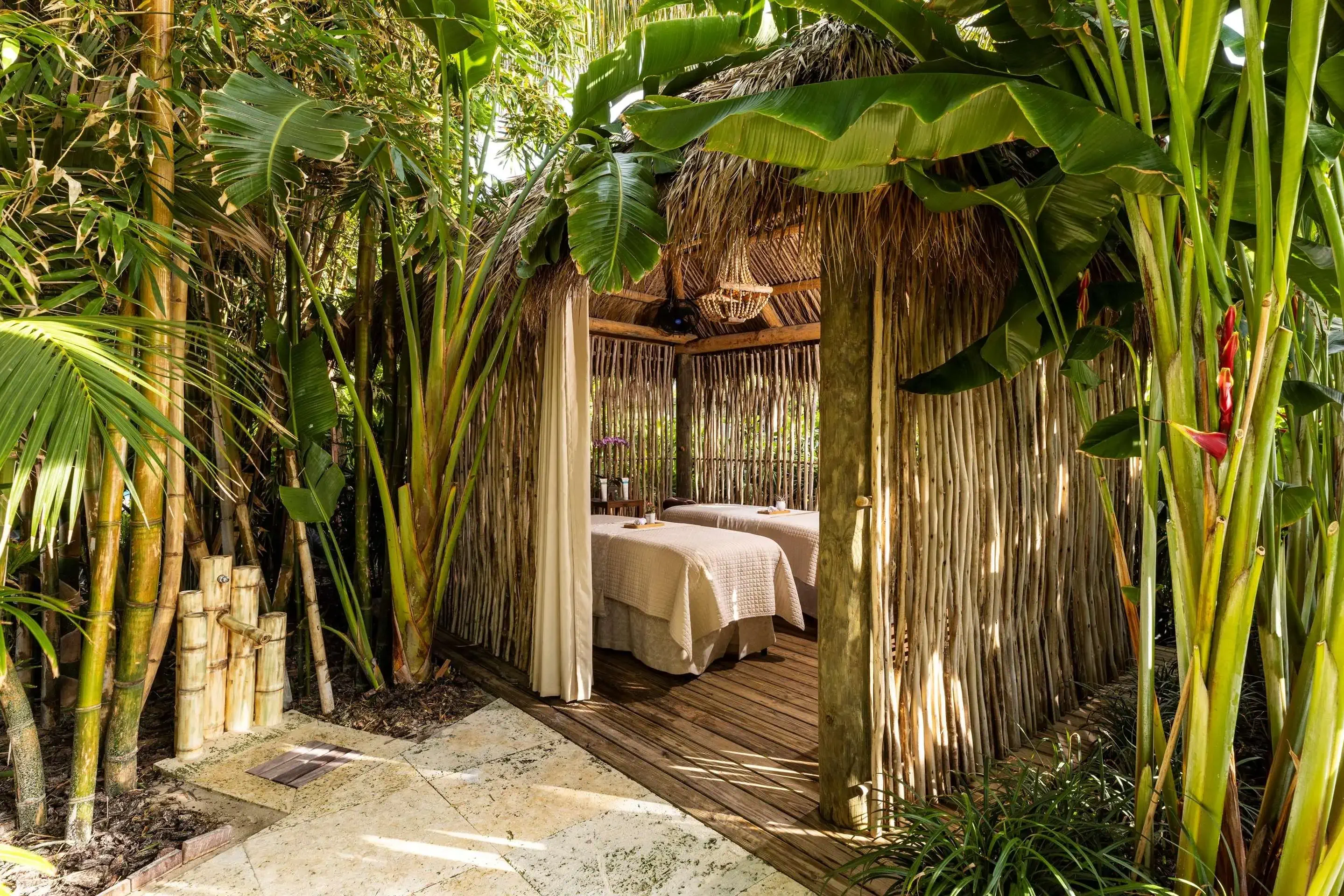
While all-inclusive does mean that most expenses (accommodation, meals, drinks, and activities) are covered, there are some notable exceptions. The following are common exclusions at some all-inclusive properties.
Premium drinks and dining
One of the most common exclusions for all-inclusive properties is premium restaurants and beverages. Some higher-end “specialty” restaurants are available for booking, but at an extra cost. Meanwhile, “house” drinks – such as wine or lower-tier liquor – are included, but premium brands or labels also cost extra.
These extra costs can quickly add up. So it’s critical you understand what your particular all-inclusive package or plan covers to avoid surprise fees at the end. And if you’re unsure, never be afraid to ask the server before you order – or before they pour a drink.
Off-resort excursions and tours
At most all-inclusive resorts, on-site activities are generally covered. However, any sightseeing, tours, exploring, or shopping that you do off the premises is likely to be at your own cost. The resort will likely be able to assist with organizing an excursion for you, but keep in mind they’ll likely also charge an extra fee, which you may be able to avoid by booking yourself. Finally, don’t forget to ask about transportation, which the resort may (or may not) provide for a fee.
Specialty spa treatments
While resorts usually include the use of their on-site spa, specialty treatments like massages, facials, or wraps often cost extra. In addition, some properties may charge guests a fee for using the on-site spa facilities. If you plan on using them, be sure to confirm in advance if there’s a fee.
After-hours childcare
A key draw for many parents at family-friendly all-inclusive resorts is on-site kids’ clubs and/or childcare, which is usually included in the rate. However, after-hours care, such as an in-room babysitter, often costs extra. Be sure to check in advance what the rate is and if you’re expected to leave gratuity on top of that.
All-inclusive resorts vs. all-inclusive hotels
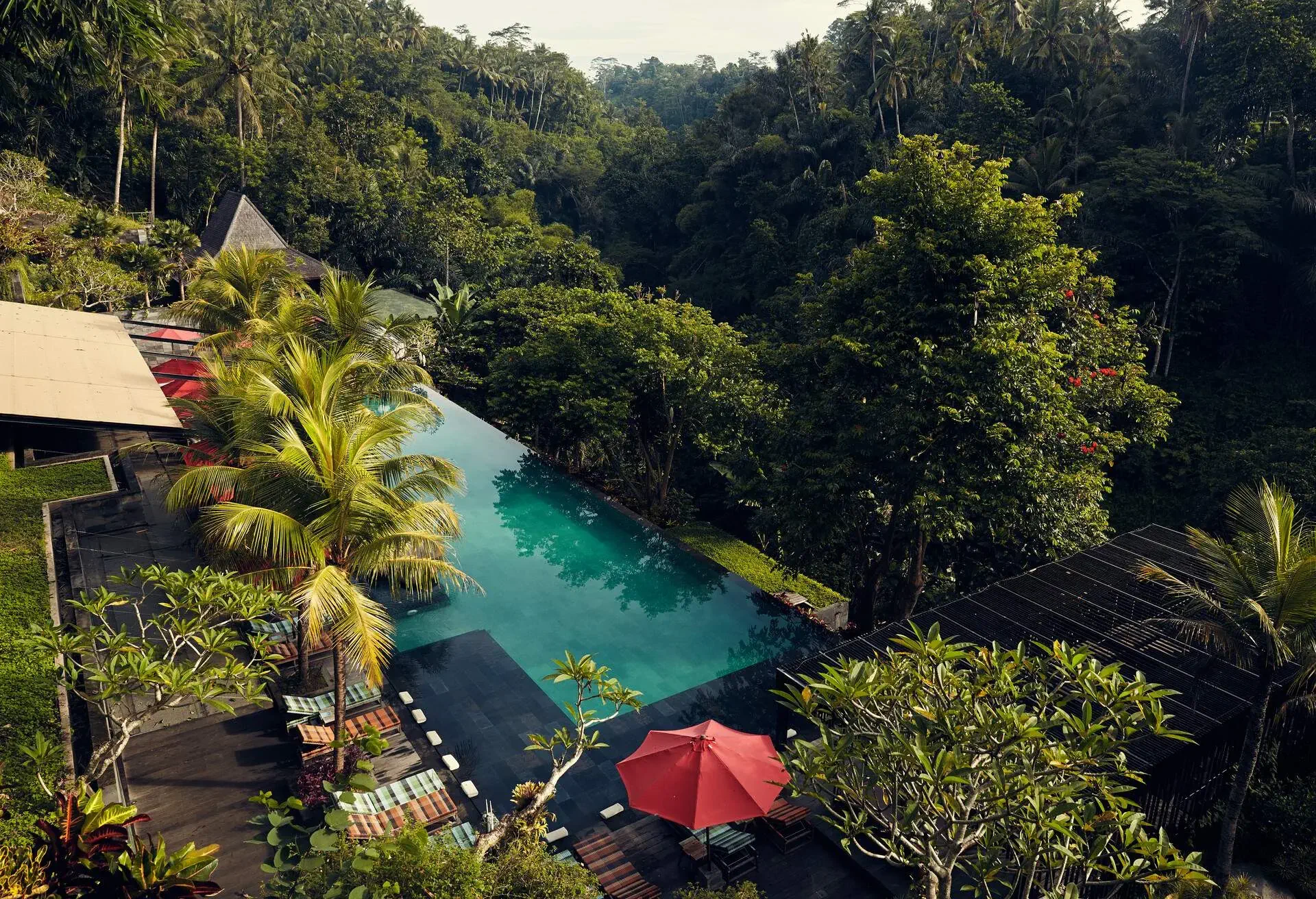
A resort is more than just a place to rest your head after a long day of exploring. Unlike hotels, which primarily focus on providing a comfortable place to sleep, resorts aim to provide an all-encompassing getaway. They tend to offer a variety of amenities that go beyond the standard hotel, from luxurious spas and gourmet restaurants to recreational activities like golf courses and water sports.
I like to think of a hotel as a place to stay but a resort as a destination in itself. Resorts are often self-contained, providing all a guest wants, such as entertainment, dining, lodging, sports activities, and shopping on the premises. Many guests book a stay at a resort with the aim of spending as much time as possible there, with the exception of some local sightseeing or excursions.
Resorts also tend to be larger than hotels, occupying a sprawling space and usually located in scenic or natural areas. Think beachfront villas lining the Caribbean coast or treetop bungalows deep in the forest. Hotels, meanwhile, tend to be located in city centers or close to main attractions, aimed at providing a base for travelers to explore outside the hotel grounds.
What type of travelers and trips are all-inclusive resorts ideal for?

All-inclusive resorts aren’t for everyone, of course. However, a study commissioned by Wyndham Hotels & Resorts found that 77% of travelers believe that an all-inclusive resort vacation is the least stressful way to travel.
If you want to leave all the worries of trip planning behind and just sink into the relaxation mode of a holiday, all-inclusive resorts are an excellent choice.
All-inclusive vs. full board vs. half board

When you’re considering an all-inclusive hotel or resort, you may see a reference to “full board” or “half board.” These terms refer to meal plans and what’s included.
There are several options to choose from, each offering varying degrees of culinary convenience. Here’s what to know.
| Rate | Food included |
|---|---|
| All-inclusive | All-inclusive is the ultimate vacation package: Breakfast, lunch, dinner, snacks, and drinks are all provided. Depending on the resort, this may mean fully catered buffets or a set menu. In addition, larger resorts may have certain restaurants designated as “premium” choices that require an extra fee. |
| Full board | Full board typically provides guests with breakfast, lunch, and dinner, all included in the room rate. This means you can indulge in a continental breakfast, savor a midday feast, and dig into a delicious dinner, without having to worry about shelling out extra cash. |
| Half-board | Half-board at hotels typically includes breakfast and dinner. Half board is an ideal choice for travelers who want to combine the convenience of dining on-site with the flexibility to try local cuisine during the day. |
Is all-inclusive worth it?
Ultimately, the decision to invest in an all-inclusive vacation depends on personal preferences, budgets, and priorities. But for travelers who crave a stress-free and indulgent escape, an all-inclusive property just might be the perfect fit.
- Great value for money: When you stay at an all-inclusive hotel, you can be sure the price of your room covers all meals, drinks, and activities.
- A hassle-free vacation experience: No need to worry about creating itineraries, researching restaurants, or booking activities outside the property. All-inclusive trips are all about checking in and kicking back to enjoy the extensive amenities on site.
- Beautiful locations: All-inclusive resorts are often located in some of the world’s most beautiful places. From beaches to mountains to desert landscapes, there’s an all-inclusive hotel to suit every taste.
- Say goodbye to boredom: The wide range of amenities and activities available at all-inclusive resorts means active travelers (and kiddos) will be spoiled for choice. Swimming pools, tennis courts, spa services, kids’ clubs: Often, there’s more to do than you even have time for.
Pro tips for making the most of your all-inclusive vacation
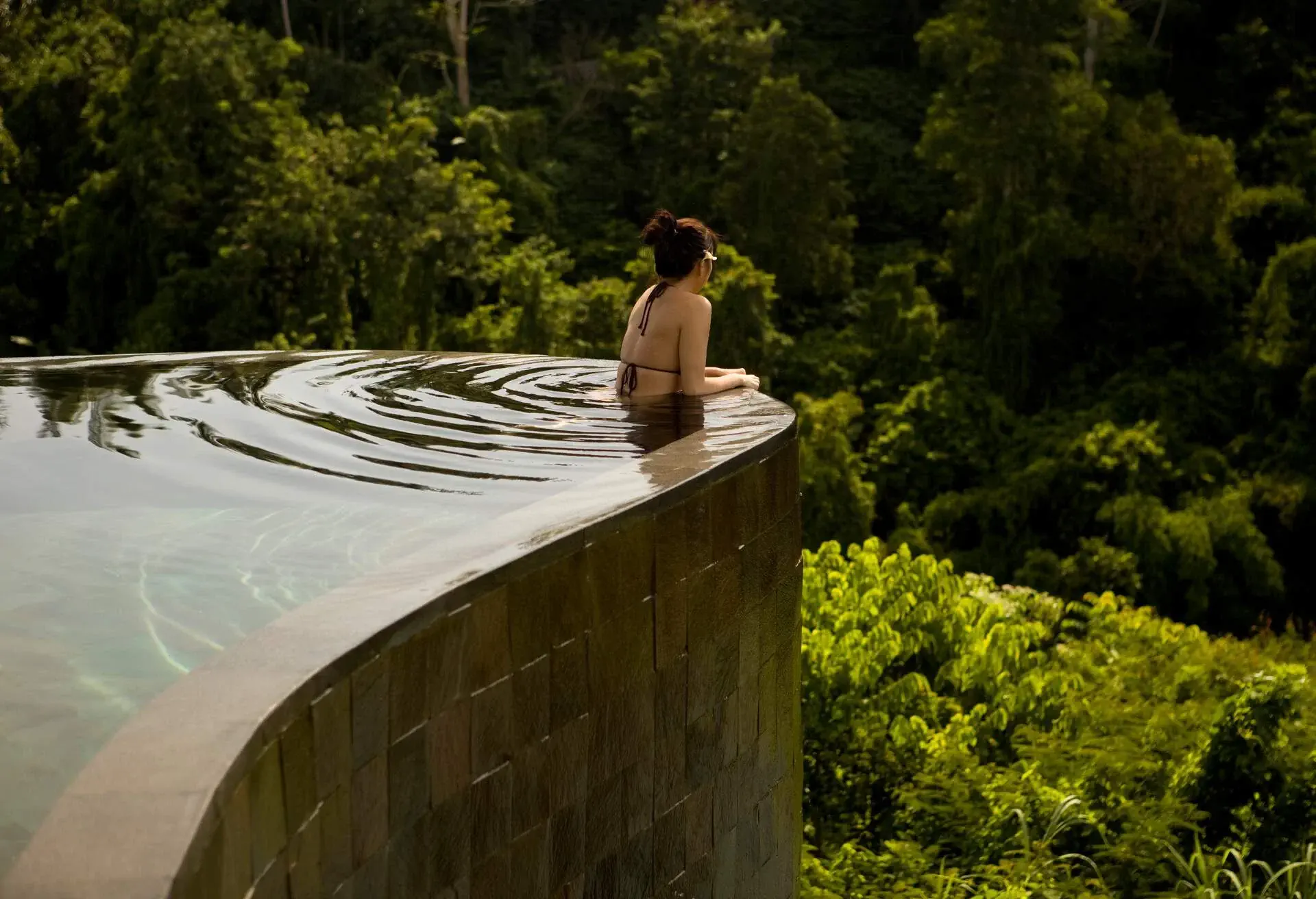
As a seasoned all-inclusive vacationer, I’ve discovered a few standout tips and tricks to help you make the most of your luxury getaway. Here’s what I’ve learned along the way.
1. Do your research
Before you book any all-inclusive vacation, be sure to do your research. There are a lot of different all-inclusive resorts and hotels to choose from, and it’s important to find one that’s well-suited to you. Read reviews, look at photos, and compare prices. And don’t forget to factor in the costs of the flights to get there, and the total travel time required.
2. Understand what’s included
Another key consideration before you book: Make sure you understand what’s included in the all-inclusive program. Most all-inclusive resorts include meals, drinks, activities, and entertainment in the price of your room, but again, there’s a lot of variety between properties. (For example, some may charge an extra fee for premium drinks or specialty restaurants.)
Sometimes, the simplest way to get clarity on what’s included and what’s not is to call the property itself. Ask a hotel employee, “What does all-inclusive mean at your property?” An employee can also help clarify what’s in the fine print so you’re not hit with an unexpected fee later.
3. Plan ahead
All-inclusive doesn’t always mean “all taken care of.” To make the most of your all-inclusive vacation, you’ll still need to figure out where you want to eat, drink, and spend your time. Decide which activities you want to do and make reservations for any that need to be booked in advance. Spa treatments are especially important to book ahead of time.
In addition, more popular restaurants also may require advance notice for your preferred dates and times. And don’t forget about reserving beach loungers or cabanas, especially during peak season. This prep can have a big payoff later, helping you make the most of your time at the resort and avoiding stress (and possible disappointment).
4. Take advantage of everything that’s included
One of the best parts about an all-inclusive vacation is that everything is included in the price of your room. So be sure to take advantage of all the amenities and activities that are available for guests. From swimming pools and water parks to golf courses and tennis courts, there’s something for everyone at an all-inclusive resort.
5. Explore beyond the resort
While there’s plenty to do at an all-inclusive hotel or resort, don’t forget to explore beyond the property during your vacation. Many all-inclusive resorts are located in beautiful destinations with plenty of things to see and do. The property may also include free transport, so be sure to ask about that ahead of time.
6. Don’t forget your swimsuit
If there’s any destination where there’s ample opportunity to enjoy the pool, beach, or on-site spa, it’s an all-inclusive resort. So be sure to pack your swimsuit (plus sandals and any other beachwear) to take advantage. If you forget to pack one, there may not be an on-site shop that sells them, and if there is, the prices will undoubtedly be high.
Find all-inclusive resorts in your favorite destinations
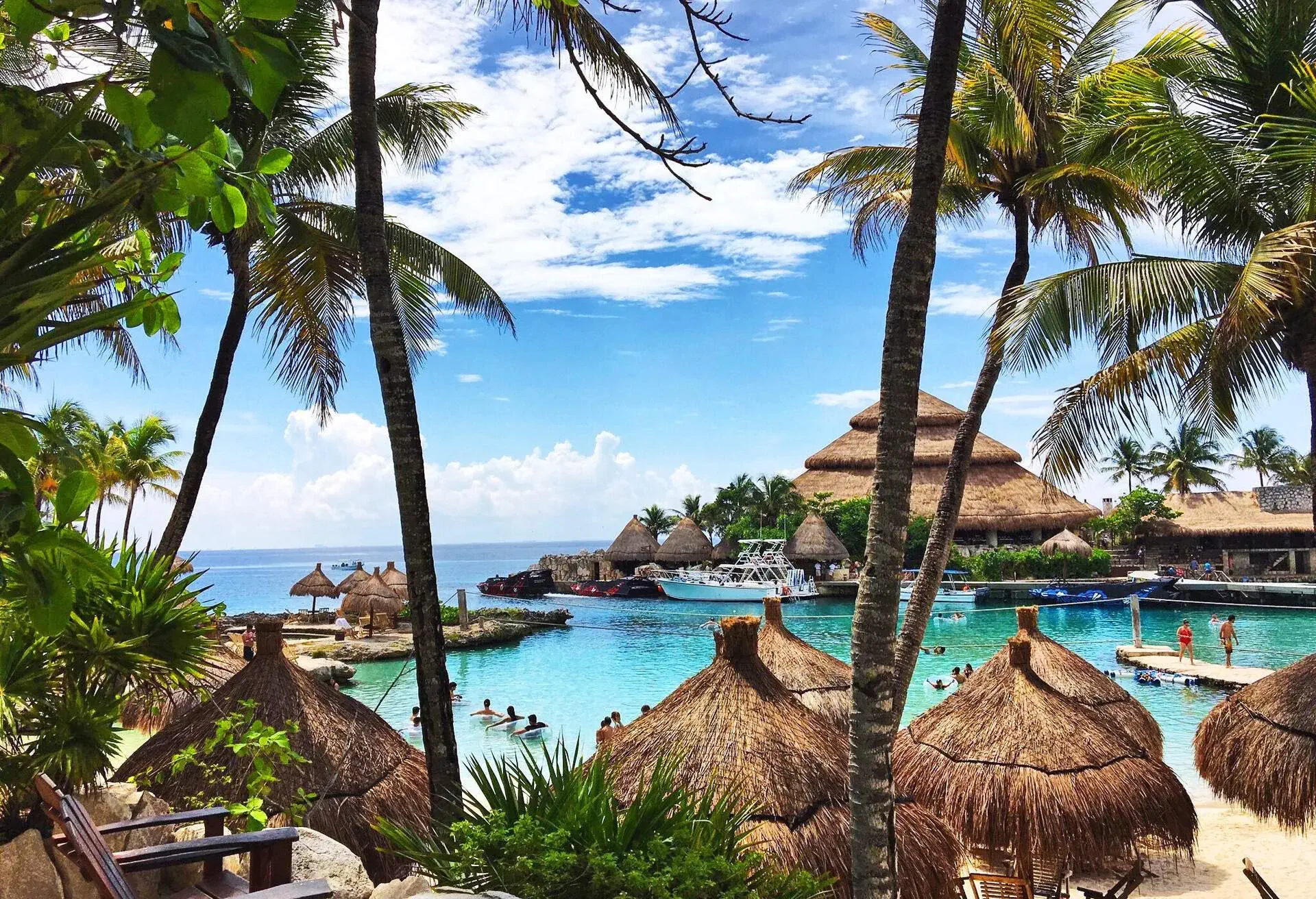
Some destinations are just made for all-inclusive resorts. Cancun and Miami Beach are among the most sought-after tropical hotspots to kick back and indulge in paradise. You’ll find some of the most famous beachfront resorts there, and KAYAK can help you filter through to find the perfect one. Just use the ‘beachfront filter’ when searching.
If you want somewhere a little more chill, check out Honolulu Resorts or Myrtle Beach Resorts, for family-friendly all-inclusive resorts where you can take the whole family and enjoy the surf and sand.
Resorts don’t always have to be about the beach, though. Enjoy the ease of booking an all-inclusive resort in a bustling city like Las Vegas, so everything can be taken care of for you.
All-inclusive resorts FAQs
If you still have questions around the concept of an all-inclusive stay (or are still wondering “what does all-inclusive mean?”), read on for my intel.
Yes. At all-inclusive resorts or hotels, all meals and snacks are usually covered. However, properties have different plans, options, and policies, such as full or half-board plans, so it’s crucial for travelers to do their homework ahead of time on what’s included and what isn’t. In addition, some properties have specialty dining options
It’s hard to imagine an all-inclusive experience without a refreshing drink in hand. Most all-inclusive resorts do provide alcohol as part of their package. However, there may be some limits as to what exactly is included. Some resorts also have a premium drinks package, which means that certain drinks (such as house wine) are included, while other selections are available for a fee. Always check the fine print before ordering.
Air travel is rarely included in an all-inclusive package price. However, airlines often offer their own bundle deals that may be more cost-effective for your specific travel plans, such as combining flights and an all-inclusive stay. To search for combined stays and flights on KAYAK, use the package deals search tool.
The general rule of thumb for what all-inclusive means: accommodation, food, drinks, activities, and gratuities are all included. However, the specifics (premium drinks, certain activities) can vary greatly between different plans and properties. Be sure to do your research ahead of time so you understand what’s free (and what requires an extra cost) so you’re not hit with an unexpected cost during your trip.

